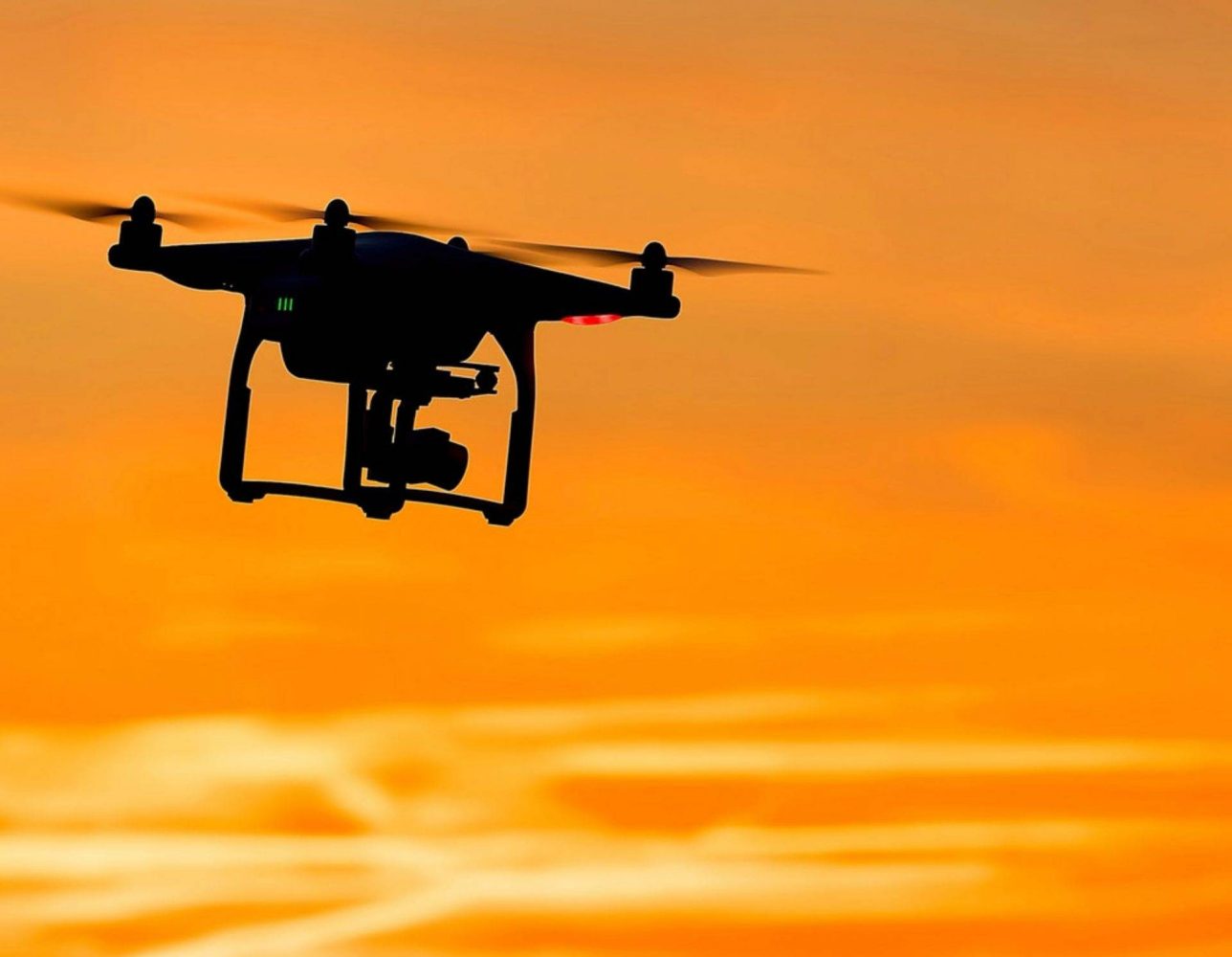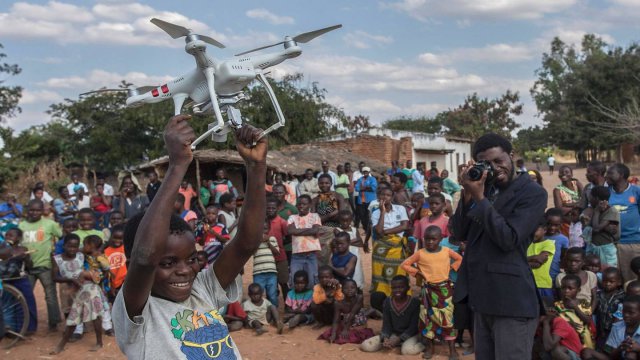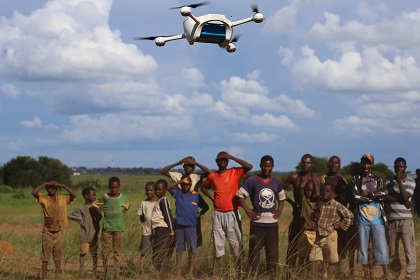Ready For The Big Scene? Unraveling The State Of Africa’s Drone Industry

Last month, the United Nations International Children’s Emergency Fund (UNICEF) unveiled what it christened the UNICEF Innovation Funds for Drone Startups 2018. In a move that is expected to further the growth of the drone scene in some of UNICEF’s programme countries, the fund has set its sights on making as much as USD 100 K equity-free investments to provide early-stage (seed) finance to for-profit technology startups that have the potential to benefit humanity through the use of drones. Essentially, UNICEF’s latest innovation fund is arriving as a window of opportunity for promising drone startups in the developing world to improve on their craft and channel these improvements toward proffering solutions to some of the immediate problems of their respective communities. pThe benefits of UNICEF’s latest initiative is expected to encompass such important aspects as seed funding, product and technology development, business growth, networks and platforms, impact maximization, exclusive access to the organization’s drone corridor located around Kasungu, Malawi (which will provide the physical space for solution testing), as well as the provision of data obtained from sister companies who are running tests in the three drone corridors where UNICEF has presence. And it appears it could not have come at a better time for drone startups on the African scene.
Africa And The Drone Invasion

Africa has witnessed a marked increase in the number of drone registrations and deployments in recent times, albeit for different purposes which cut across recreational, surveillance, commercial geographical, and otherwise. As indicated by the figures obtained from a document released by the South African Civil Aviation Authority (SACAA), which is the agency tasked with monitoring and regulating the drone industry in the country, the country’s airspace has seen an increase in the frequency and usage of Remotely-Piloted Aircraft Systems (RPAS) with an initial 216 registered RPAS in the nation as at January 2016 surging upwards to as many as 663 by October 2017. As also pointed out in the document, during the same period, remote pilot licenses are reported to have increased from 33 to a remarkable 686. There are also indications which give credence to the notion that this rapid and unprecedented advancement of RPAS and their potential use in commercial and recreational activities may have caught many regulators across the world by surprise. In many other African countries, the drone proliferation tale has been much the same; a feat which gives further evidence to the established premise.
The potentials of the African drone scene, as well as the problems bedeviling it, were the subjects of a recent drone report published by the African Union (AU), in collaboration with the New Partnership for Africa’s Development (NEPAD). As indicated by the report, it could be surmised that there is some truth in the assertion that some of the most successful drone delivery programs in the world are currently deployed in Africa. In recent times, the continent’s drone setup has been on the receiving end of a number of significant inputs. A valid case in point exists in the form of Zipline, a national-scale medical logistics and the drone-delivery company which has implemented delivery of medical and blood supplies to clinics in some of the most remote parts of East Africa’s Rwanda. Throw that in with the earlier-mentioned first-ever drone corridor which was implemented successfully by UNICEF in Malawi for the delivery of vaccination to rural areas in the country that may be otherwise inaccessible, and it becomes clearer how much people-oriented impact has been achieved by drone implementations and deployment in the African setting.
As pointed out in the AU-NEPAD drone report, agricultural development remains Africa’s best chance of enhancing wellbeing and reducing poverty. training, it is also pertinent to note that this identified path to the continent’s economic and social liberation is hampered by input costs and uncertainties in weather patterns. In view of this, there has been something of a rallying cry for countries to put farming practices which have designs on increasing yield, lowering costs, and optimizing profit on the frontburner. The optimization of profit via increasing productivity and improving yield have been helped, in many ways, by the proliferation of a number of innovative developments that have been unearthed through the years.
To further buttress the importance of drone technology to the African set-up going forward, it was stated as one of the resolutions of the AU-NEPAD drone report that African countries will be better served by intensifying efforts toward the promotion of precision agriculture using drones. As stated in the concluding parts of the report, “this situation calls for a review of agricultural policies and practices, and an explicit understanding that is enabling policies for the promotion of such drone technologies must be formulated.” As an addition, other areas that were also tipped by the report to be potentially impacted by drone technology included such aspects as land-use planning processes, small cargo delivery, and scientific research. Essentially, this gives some credence to the notion that the African scene may indeed be suited to the advancement of drone technology, as it supports schemes that are oriented to or can have a significant bearing on the lives of people in the most remote parts of the world. And how fitting it is that the motivation behind the latest innovation fund from UNICEF is centered about the same lines. Now, the big question is: Is Africa well-positioned for this drone incursion?
Is Africa Ready For Drones?

When it comes to drone technology, one of the major challenges that can behave as an albatross to its development exists in the way of ignorance of the technology. Generally, drone technology is still considered as unfamiliar territory for most of the populace, as there is still an air of unfamiliarity and skepticism regarding the technology in the reckoning of some sections of the locals. From all indications, drone technologies are considered in the same category as other emerging technologies. Techniques of this kind are generally regarded as novel and unfamiliar, especially in Africa.
In any case, the technology has proved quite useful in such aspects as medical emergencies and relief response in the event of natural disasters. This is the area where Many countries have expressed willingness or showed some interest in adopting the technology, and it might yet come in handy.
As part of the bottlenecks and hurdles that impede the wide adoption of the technology, there also exists insufficiencies in the regulatory framework. The civil aviation policies in a number of African countries have no provisions that are formulated to deal with drones adequately. There are even scenarios where the technology have been banned temporarily pending the formulation of policies that cater to the adoption and use of the technology. More so, a number of reliable records indicate that only a meager 26% of African countries currently have drone regulations. These suggest that the widespread implementation of the technology across various regions of the continent might actually take some doing.
Current Use-Cases

As earlier pointed out in this piece, drones are being put to good use and good effect in areas where they are legal. A number of people-focused use-cases have been reported as current implementations of the technology around the continent. The medical drone delivery programs in Eastern Africa’s Rwanda and Malawi represent just one example.
In Morocco, drone technology is currently being adopted in such spheres as agribusiness, as well as surveillance of ports and the monitoring of work progress in construction circles. Reports from Tanzania, another country in Eastern Africa, suggest that drones are employed in flood mapping, where they function in predicting the onset of floods and its potential impact while aiding decision-making on the direction of activities geared toward reducing its incidence and risk to affected communities.
Namibia, Congo, and South Africa, amongst others, have reported the utilization of the technology in the protection and conservation of wildlife species and land resources. In these areas, drones significantly cut down on the amount of manpower and time that would otherwise be required to survey and monitor vast expanses of land. And they do a good job of it too, with their high-tech features which include Artificial Intelligence (AI) and high-resolution imagery giving the technology the edge over what has always been the norm. Law enforcement agencies in these countries are also curtailing cases of big-game poaching (especially rhinos and elephants) by employing the AI incorporated into a number of state-of-the-art drones.
Africa’s Emerging Drone Industry
Over the years, the African entrepreneurship ecosystem has witnessed something of proliferation in the establishment of startups that are in the business of developing Unmanned Aerial Vehicle (UAV) technology in the continent. With South Africa appearing to set the pace for the rest of the chasing pack, the industry can be regarded as having a lot of potentials. And here is a rundown of some of the notable names that are currently exploring new horizons and making waves in the industry.
Aerobotics is one of such startups which was birthed in 2014, in Cape Town, as the brainchild of the duo of Benji Meltzer and James Paterson. Using AI, Aerobotics is looking to deploy drones to help farmers in such places as South Africa, Australia and the United Kingdom in the collection of data and monitoring the condition/population of planted crops.
Durban-based software startup, DroneScan, have developed software which allows drones to scan inventory using ScanMan software. Also worthy of mention are other drone startups such as DroneClouds, Ranmarine Technology (developers of WasteShark; a 24-hour on-the-water drone), SteadiDrone, Aerial Monitoring Solutions, RocketMine (pioneers of commercial drones in South Africa’s mining industry), WiPo Wireless Power, UAV Industries, United Drone Holdings, Arone (a Nigeria-based drone startup that has just garnered angel funding and is looking to pioneer the manufacture of drones in the West African nation), Will & Brothers, and a number of others. All these can be thought to support the prospect of a veritable and viable drone market straight out of the African setting.
Challenges And Prospects
The drone industry is envisaged to hold immense potential and significant prospects in the way of benefits for the African set-up. While a number of studies are quick to emphasize this assertion, it might also do some good not to lose sight of the challenges that lay in wait. Of all these challenges, broad adoption appears the most significant factor. Regulatory policies and technological setbacks are only the less malignant parts of a larger problem. Another concern exists in the form of economic constraints which may limit the number of individuals who can access the much-needed technology to only a few privileged persons that can afford it. Then comes the issue of social acceptance which is always rearing its ugly head as another significant drawback to the technology’s widespread implementation.
Regardless, there is a growing conviction amongst the continent’s enlightened individuals, millennials, and visionaries that drone technology holds a significant benefit for Africa in the near future. However, some degree of synergy between the private and public sectors is a prerequisite if the economic and social emancipation, which will almost certainly accompany the imminent drone invasion, will indeed come to fruition.